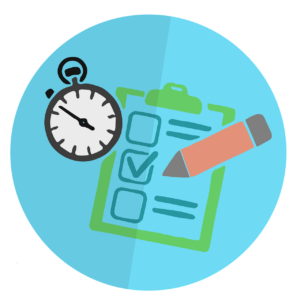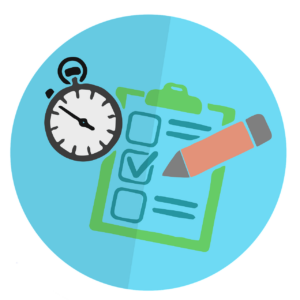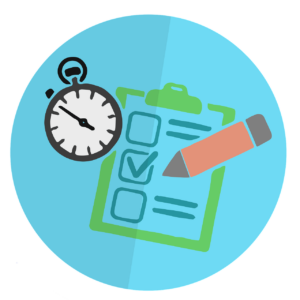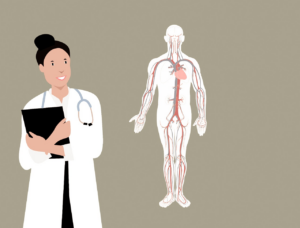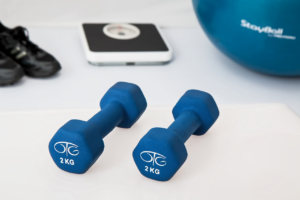Are you preparing for the Fundamental of Nursing Exam 1? Are you feeling overwhelmed and unsure about where to start studying? Don’t worry, with the right study plan and strategies, you can master this exam and feel confident on test day.
In this article, we will provide you with a complete study plan to help you prepare and excel on the Fundamental of Nursing Exam 1. From creating a study schedule to reviewing nursing concepts, we will guide you through the process step-by-step.
With practice questions and test-taking strategies, you will be well-prepared to tackle any question that comes your way. So, let’s get started!
Key Takeaways
- Creating a study schedule and prioritizing topics according to difficulty is important for success in the Fundamental of Nursing Exam 1.
- Reviewing nursing concepts and practicing with questions are effective study strategies.
- Test-taking strategies such as time management and stress reduction can help improve performance.
- Recommended materials include practice exams, review notes, and a study schedule, as well as taking breaks and getting rest.
Overview of the Fundamental of Nursing Exam 1
Get ready to ace the Fundamentals of Nursing Exam 1 with this complete study plan, starting with a brief overview of what to expect.
The nursing exam structure consists of multiple-choice questions that assess your knowledge and understanding of the fundamental concepts of nursing. You’ll be tested on topics such as nursing theory, ethics, communication, health assessment, infection control, and medication administration.
To help you prepare for the exam, it’s important to familiarize yourself with these common topics. This will not only help you answer the questions correctly, but also build your confidence during the exam. Additionally, make sure you have a good understanding of nursing terminology, as this will help you comprehend the questions and answer them more efficiently.
Remember to take breaks during your study sessions to prevent burnout and stay motivated.
With this overview in mind, you’re now ready to dive into the complete study plan.
Creating a Study Schedule
Crafting a schedule to enhance your exam preparation can significantly boost your chances of success. Time management is key when creating a study schedule. Here are four tips to help you create a schedule that works for you:
-
Prioritize: Make a list of the topics that you need to cover, and prioritize them according to their level of difficulty. This will help you focus on the topics that require more attention.
-
Set realistic goals: Be realistic when setting goals for your study sessions. Don’t try to cram too much information into one session. Instead, break down your study sessions into smaller chunks and set achievable goals.
-
Take study breaks: It’s important to take study breaks to give your brain a chance to recharge. Take a 10-15 minute break every hour or so to stretch, get some fresh air, or grab a snack.
-
Stick to your schedule: Once you’ve created your study schedule, stick to it as closely as possible. Consistency is key when it comes to exam preparation.
By following these tips, you’ll be able to create a study schedule that works for you and helps you ace your Fundamental of Nursing Exam 1.
Reviewing Nursing Concepts
Let’s review some nursing concepts to refresh our knowledge and improve our chances of success in the upcoming exam. Nursing theories are essential to understanding patient care. By understanding the different nursing theories, you can develop a framework for approaching patient care that is systematic and effective.
It’s important to remember that patient care is at the heart of nursing. You’ll need to be comfortable with all aspects of patient care, including assessment, diagnosis, planning, implementation, and evaluation.
By reviewing these concepts, you’ll be better prepared to provide safe, competent care to your patients. Remember to take your time and go over each concept thoroughly. Don’t hesitate to ask your instructors or colleagues for help if you need it.
With hard work and dedication, you can master these fundamental nursing concepts and excel on your upcoming exam.
Practice Questions
Answering practice questions is like taking a journey through patient care scenarios, allowing you to apply nursing concepts and gain a deeper understanding of their practical application. NCLEX-style practice questions are a great way to prepare for the nursing exam by simulating the types of questions you will encounter.
These questions are designed to test your knowledge of nursing concepts and your ability to apply them in a clinical setting. By taking mock exams, you can also get a feel for the format of the actual exam, helping to minimize test anxiety and increase your confidence.
When answering practice questions, it’s important to review both correct and incorrect answers. Understanding why an answer is correct or incorrect can help reinforce your understanding of nursing concepts and identify areas where you may need additional study.
Additionally, practicing with a variety of questions can help you develop critical thinking skills, which are essential for success in nursing practice. So, make sure to take advantage of the many NCLEX-style practice questions available to you as you prepare for your nursing exam.
Test-Taking Strategies
To improve your test-taking skills and increase your chances of success, it’s essential to develop a strategic approach that fits your learning style and helps you stay focused and calm during the exam.
One of the most crucial aspects of test-taking is time management. You must allocate your time wisely, allocating more time to questions that carry more weight, and not spending too much time on questions that are difficult or unclear. Be mindful of the time, and don’t get bogged down in one question, which can lead to rushed and inaccurate answers to other questions.
Stress reduction is another critical component of test-taking. When preparing for the exam, make sure you take care of yourself physically and emotionally. Get enough rest, eat a healthy diet, and engage in activities that reduce stress, such as exercise or meditation.
During the exam, use relaxation techniques like deep breathing or visualization to stay calm and focused. Remember, a clear mind is essential to answering questions accurately and effectively.
By incorporating effective time management and stress reduction strategies into your test-taking approach, you can increase your chances of success on the nursing exam.
Final Tips and Resources
Don’t miss out on these helpful final tips and resources to boost your chances of success on the nursing exam! Remember that preparation is the key to success, and using the right materials and managing your time efficiently can make a big difference in your overall performance.
Here are some recommended materials and time management tips that can help you prepare better:
-
Use practice exams: Practice exams are a great way to familiarize yourself with the format and types of questions you will encounter on the nursing exam. They can also help you identify areas where you need to focus more study time.
-
Review your notes: Reviewing your notes regularly can help you retain the information you need for the exam and increase your confidence in your knowledge.
-
Make a study schedule: Creating a study schedule can help you manage your time effectively and ensure that you cover all the material you need to know.
-
Get plenty of rest: Getting enough sleep is crucial for your brain to function at its best. Aim for at least 7-8 hours of sleep each night and avoid studying late into the night before the exam.
By incorporating these tips and resources into your study plan, you can increase your chances of success on the nursing exam. Remember to stay focused and positive, and trust in your preparation and hard work. Good luck!
Frequently Asked Questions
What is the passing score for the Fundamental of Nursing Exam 1?
To pass the Fundamental of Nursing Exam 1, you need to score at least the minimum passing score set by your nursing school or the licensing board in your state. The passing score may vary depending on the institution or the state, but usually, it falls between 60% to 75%.
The exam duration also varies, but it usually takes around two to four hours to complete. To increase your chances of passing, you need to prepare well by studying the fundamental concepts of nursing, practicing critical thinking skills, and familiarizing yourself with the exam format and type of questions.
It’s also important to manage your time wisely during the exam and answer the questions strategically to maximize your score.
How long is the exam and how many questions are on it?
The exam duration for the Fundamental of Nursing Exam 1 may vary depending on the institution or program administering it, but it typically lasts for about 2-3 hours.
The question format usually consists of multiple-choice questions, with some exams also including fill-in-the-blank, matching, or short answer questions.
The number of questions on the exam can also vary, but it usually ranges from 75 to 265 questions.
It’s important to carefully read and understand each question before answering, and to manage your time wisely to ensure that you’re able to answer all the questions within the given time frame.
Are there any specific materials or textbooks recommended for studying for the exam?
When preparing for any exam, it’s always helpful to have recommended materials and study guides at your disposal. These resources can provide you with the necessary information and guidance to help you succeed.
Many textbooks and study guides are available for nursing students to use when preparing for exams. By utilizing these materials, you can gain a better understanding of the topics covered on the exam and increase your chances of earning a passing grade.
It’s important to do your research and find materials that are reputable and align with the exam’s content. Additionally, seeking guidance from your professors or peers can also be beneficial in finding the best materials for your studying needs.
Can the exam be taken online or is it only offered in-person?
If you’re wondering whether the exam you’re planning to take can be done online, the answer is yes. Many institutions offer an online option for taking exams, including the Fundamental of Nursing Exam 1.
However, it’s important to note that there may be proctoring requirements in place to ensure the integrity of the exam. This means that you may need to take the exam under the supervision of a proctor, who can verify your identity and ensure that you’re following the rules.
It’s a good idea to check with your institution to find out what proctoring requirements are in place, and to make sure that you’re prepared to meet them if necessary.
Are there any accommodations available for individuals with disabilities taking the exam?
If you have a disability and need accommodations for an exam, there are generally options available to you. Disability support services at your school or testing center can provide information on what accommodations are available and how to go about requesting them.
Accommodation options may include extra time, a separate testing room, or the use of assistive technology. It’s important to communicate your needs as early as possible, so that the necessary arrangements can be made.
Remember, accommodations are there to help you succeed, so don’t hesitate to take advantage of them if you need them.
Conclusion
Congratulations! You’ve completed your study plan for the Fundamental of Nursing Exam 1. By following the steps outlined in this guide, you’ve set yourself up for success.
Remember to stick to your study schedule and review nursing concepts regularly. Practice questions and test-taking strategies are crucial for building confidence and identifying areas of weakness. Use these resources to your advantage and don’t forget to take breaks and care for your mental and physical well-being.
With dedication and hard work, you’ll be well-prepared for Exam 1. Good luck! And if you find yourself struggling, don’t hesitate to reach out for additional resources or support.
You’ve got this!
















